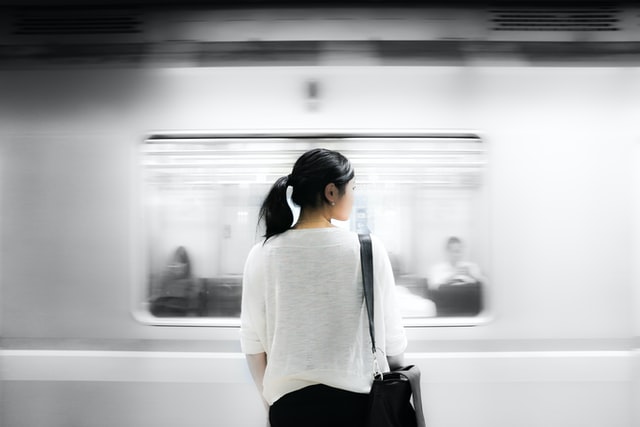In his statement on Tuesday’s shootings in Atlanta, Cherokee County Sheriff’s Capt. Jay Baker said that the shooter, Robert Long, was having a “really bad day,” when he killed eight people, six of whom were Asian women.
Allegedly, Long told law enforcement officials that he had a sex addiction and that he opened fire on three different Asian-owned spas to “eliminate” his temptation.
Both Baker’s statement and Long’s alleged motive only serve to solidify ideas that have been in place since the beginning of Asian America – that Asian bodies are expendable, and that Asian women, in particular, are little more than sex objects.

For Asian American women, these killings are a culmination of the gendered racism we have experienced for generations dating back to the first restrictive federal immigration law in US history, the Page Act of 1875, which prohibited female sex workers from entering the country. At the time, all women of Asian descent – particularly Chinese women – were considered sex workers.
In his book “Orientals: Asian Americans in Popular Culture”, Robert G. Lee relegates this hypersexualized version of the Asian body to “the deviant,” one of the 6 Faces of the Oriental by which Asian American people are represented.

“The Oriental as deviant,” said Lee, “…is a figure of forbidden desire.” The similarities between the Asian as the deviant and Long’s movies are clear. The Page Act framed Chinese women as foreign temptresses during a period in which the heteronormative, white nuclear family dynamic was becoming an integral part of American culture.
Gendered racism does not only exist for Asian women in the US, however. US imperialism in Southeast Asia has left behind a legacy of sex tourism – a result of the hyper sexualization and fetishization of Asian women proliferated by American soldiers stationed in Korea, Vietnam and the Philippines since World War II.
“Asian women have been used to recruit white men to wars overseas,” said Alison Roh Park, Professor of Ethnic Studies at a public university in New York City and founder of an Asian American media startup.

“This is a very long-standing American tradition of Asian women absorbing the brunt of the fantasies of white masculinity [that] has actually defined Asian America.”
The Korean American community, in particular, saw much of its start from war brides. Since 1950, around 100 thousand Korean women have immigrated to the US as the wives of American soldiers.
Many of these couples met in the remnants of Japanese imperialism – a time during which women across East Asia were forced into sexual slavery for the Japanese army. Rather than liberating them, the US military adopted the system themselves – resulting in “camptowns” – areas containing red-light districts that surround US military bases.
“That is the world that we live in historically,” said Park. “Where Asian women, and women generally of the global south are conquests.”
Western media is permeated with the Asian woman as the sex worker, sexual deviant, and sexual conquest, as well.
A famous scene from Stanley Kubrik’s 1987 Vietnam War film “Full Metal Jacket”, in which a Vietnamese sex worker approaches two US soldiers with broken English phrases like “Me so horny” and “Me love you long time”, follows Asian American women in the form of catcalls from car windows or on sidewalks.
Jokes supposedly lauding Asian women’s sexual superiority, like Amy Schumer saying men choose Asian women over her because they “know men hate when women speak” and have the “smallest vaginas in the game” carry out the image of the docile, silent Asian woman whose body exists only for white male pleasure. Asian women are framed as a foreign “other” for white women to be afraid of.
In another film, “Austin Powers in Goldmember”, the protagonist crosses off “threesome with Japanese twins” from his bucket list after being approached by two scantily clad Asian women in schoolgirl outfits names “Fook Mi” and “Fook Yu” who offer to give him their “top secret massage”.
In a period where Anti-Asian hate crimes are on the rise and a culture so entrenched in Asian stereotypes that have only been fueled throughout the COVID-19 pandemic, many are unsure where to go from here.

For Asian Americans, this means understanding our own history and dismantling harmful stereotypes such as the Model Minority Myth, which intentionally pits Asian Americans against Black folx.
“The historic comparative racialization of Asian Americans has really left us without our own narrative or our own infrastructure,” said Park. “One of the first steps should be actually acknowledging that we do not have adequate spaces for Asian Americans to even come together and have a shared understanding of history.”
“A journey of self-understanding is the first step.”
Originally posted 2021-03-20 12:26:07.








